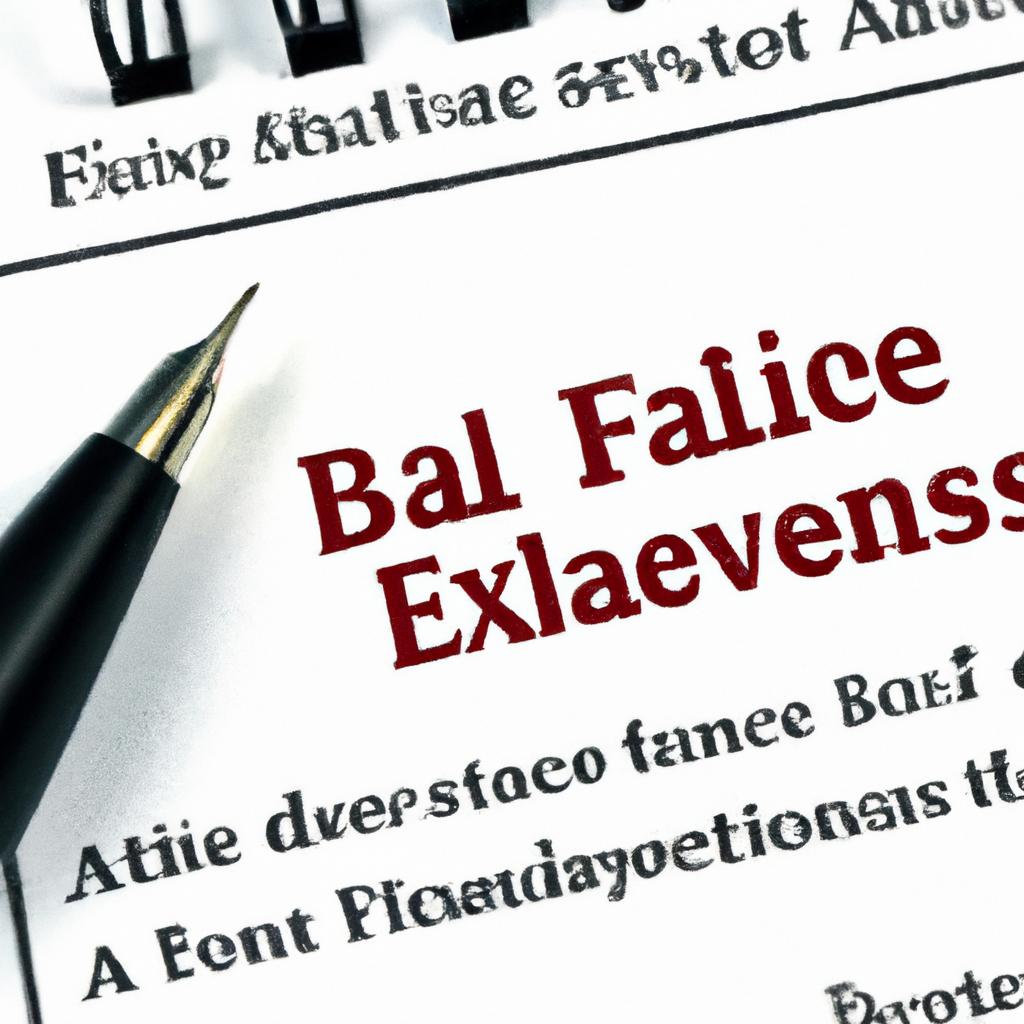In the intricate realm of estate planning and probate law, the enigmatic concept of the slayer rule looms large as an essential element ensuring justice and fairness in the distribution of assets. Whether considered a safeguard against moral hazards or a necessary provision for the preservation of societal values, the slayer rule serves as a critical tenet in the legal framework governing inheritance and succession. As seasoned attorneys at Morgan Legal Group, based in the bustling metropolis of New York City, we unravel the complexities surrounding this intriguing doctrine and delve into its implications for clients navigating the intricacies of wills, trusts, and elder law.
Understanding the Slayer Rule in Estate Planning
The Slayer Rule in estate planning is a legal principle that prevents individuals from inheriting property from a deceased person if they are found to be responsible for that person’s death. This rule is based on the idea that a person should not be able to benefit financially from their own wrongful actions. Essentially, the Slayer Rule ensures that individuals who are guilty of murder or manslaughter do not profit from their crimes.
In cases where the Slayer Rule applies, the individual who would have inherited property under the deceased person’s Will is effectively disinherited. Instead, the property will pass to the next eligible beneficiary. It is crucial for individuals to understand the implications of the Slayer Rule in estate planning to ensure that their wishes are carried out and that their assets are distributed according to their intentions. Failure to consider the Slayer Rule could result in unintended consequences and complications for loved ones.
Key Aspects of the Slayer Rule and Its Implications
The Slayer Rule is a legal principle that prevents a murderer from inheriting property or benefits from the estate of the person they killed. This rule is based on the idea that no one should profit from their own wrongful actions, especially not at the expense of the victim’s loved ones. In essence, the Slayer Rule ensures that a wrongdoer cannot benefit financially from their crime.
There are several key aspects of the Slayer Rule that are important to understand:
- No Beneficiary Status: A person who is found to have unlawfully caused the death of another person cannot inherit from the victim’s estate.
- Intent Requirement: In order for the Slayer Rule to apply, it must be proven that the individual intentionally caused the death of the deceased.
| Key Aspect | Implications |
|---|---|
| No Beneficiary Status | The murderer will be disinherited and lose any rights to inherit from the victim. |
| Intent Requirement | Proving intent can be challenging, but it is essential for the application of the Slayer Rule. |

Insightful Analysis of Exceptions to the Slayer Rule
When discussing the Slayer Rule, it is essential to understand its significance in estate planning and probate law. The Slayer Rule essentially prevents an individual who has unlawfully caused the death of another person from inheriting or benefiting from that person’s estate. This rule is founded on the fundamental principle that one should not be able to profit from their own wrongdoing.
However, there are exceptions to the Slayer Rule that provide for a more nuanced analysis of specific situations. One exception is if the individual was found not guilty by reason of insanity for the death of the decedent. In this case, the Slayer Rule may not apply, as the individual may not have been in full control of their actions. Additionally, if the individual is found not criminally responsible for the death of the decedent due to a mental disorder, they may also be exempt from the application of the Slayer Rule. It is important to consult with an experienced attorney to navigate the complexities of the Slayer Rule and its exceptions.

Best Practices for Navigating the Slayer Rule in Estate Administration
It is essential for individuals involved in estate administration to understand the implications of the Slayer Rule. This rule dictates that a person who unlawfully causes the death of another individual is not entitled to inherit any part of the deceased person’s estate. Navigating the complexities of the Slayer Rule requires careful consideration and adherence to best practices to ensure that the estate is distributed appropriately.
When dealing with the Slayer Rule in estate administration, it is crucial to follow these best practices:
- Educate Yourself: Familiarize yourself with the laws surrounding the Slayer Rule in your state.
- Consult with Legal Professionals: Seek guidance from experienced estate planning attorneys to ensure compliance with the Slayer Rule.
- Document Everything: Keep detailed records of all communications and decisions made regarding the estate administration process.
Q&A
Q: What is the slayer rule and how does it work?
A: The slayer rule is a legal principle that prevents someone who has wrongfully caused the death of another person from inheriting or benefiting from that person’s estate.
Q: How is the slayer rule determined in court?
A: The slayer rule is typically determined based on the criminal court’s findings in the case of the deceased person’s death. If the court determines that the person seeking to benefit from the estate was responsible for the death, the slayer rule will be applied.
Q: Are there any exceptions to the slayer rule?
A: There are some exceptions to the slayer rule, such as cases where the person seeking to inherit did not intend to cause harm or was found not guilty of the crime. Additionally, some states have laws that allow courts to consider other factors before applying the slayer rule.
Q: What is the purpose of the slayer rule?
A: The purpose of the slayer rule is to prevent individuals from profiting from their own wrongdoing and to ensure that the deceased person’s estate is distributed fairly and justly to other beneficiaries.
Q: How does the slayer rule differ from criminal law?
A: The slayer rule differs from criminal law in that it is a civil law principle that applies specifically to inheritance and estate matters, rather than determining guilt or innocence in a criminal case.
Closing Remarks
In conclusion, the slayer rule serves as a legal principle aimed at preventing individuals from benefiting financially from a wrongful act, such as taking the life of another individual. By outlining the important considerations and implications of this rule, it is clear that the law seeks to uphold justice and ensure that wrongdoers do not profit from their actions. Understanding the intricacies of the slayer rule sheds light on the complexities of estate law and the importance of ethical and moral considerations in legal matters. As society continues to evolve, the application and interpretation of the slayer rule will remain a vital component of the legal landscape.

